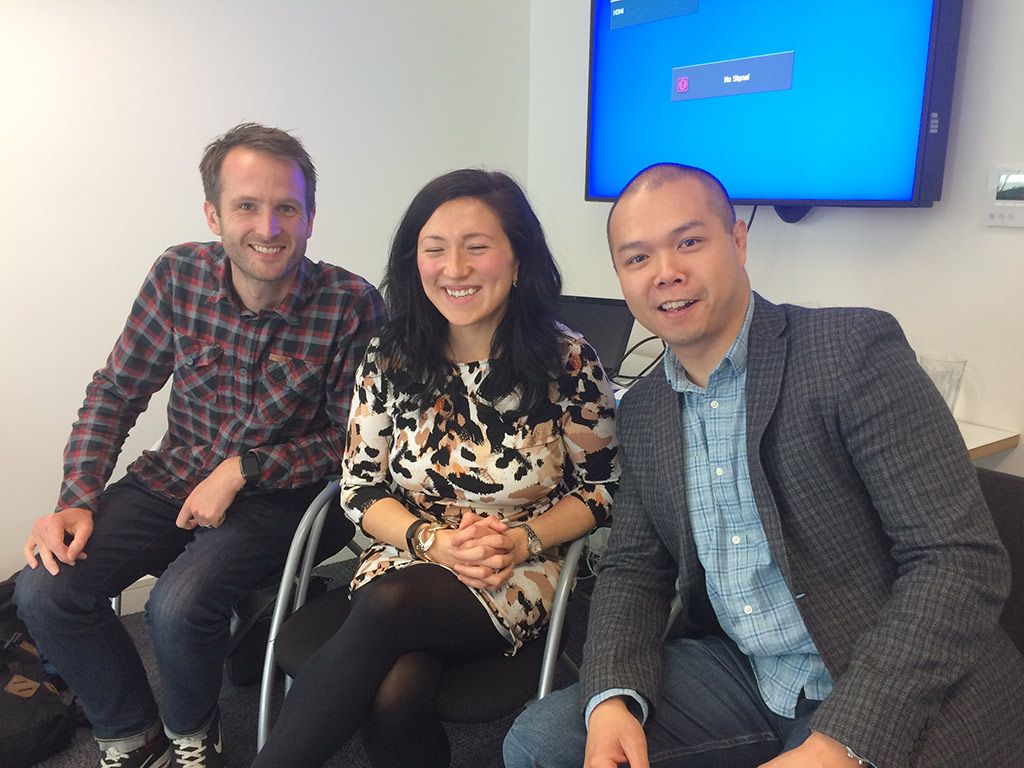Last week we welcomed the very first cohort to the Third Sector Digital Leaders’ programme, which we are running in partnership with The School for Social Entrepreneurs. It’s the first digital leadership skills training programme of its kind in England and Wales, aimed exclusively at the leaders and senior management of charities and social enterprises.
The idea for the course came about as we realised there were very few resources out there to guide non-profit leaders through the main opportunities and risks in digital, how these fit into organisational strategy and, most importantly, how to implement these ideas. So we were really excited to work closely with The School for Social Entrepreneurs to design a learning experience which will give non-profit leaders a good grounding in these areas.
The first block of the course took place last week and we were very impressed by the enthusiasm of the students, who were really engaged and asked lots of good, challenging questions! So far we’ve covered digital trends across all three sectors and how they apply to charities, the role of organisational culture, using digital to manage reputation and build trust with stakeholders and digital fundraising. The sessions were pretty packed as the course was designed to be immersive, so we’ve made sure there is space for students to reflect on what they have learned.
We’re really grateful to our speakers, who were excellent and very generous with their time. They were all refreshingly candid about what had worked well for them, and what they would improve. Digital is such a new thing for many organisations and there is going to be trial and error; if there isn’t, you are not doing it right.
Our highlights so far include:
- Anthony Leung of Pret a Manger shared what charities could learn from the success of the Veggie Pret campaign. This wasn’t just about social media- it was about opening up your brand to become a community of liked minded people who share the same values. Anthony kept coming back to the issue of purpose- as in, what’s your organisation’s reason for doing what it does, beyond being sustainable? This is a key issue for digital as it’s got to be about more than using the channels for their own sake- it must be deployed as a means of achieving your charity’s vision and mission.
And yes, he talked about Christmas sandwiches as well.
- Dominic Campbell, MD of FutureGov shared his views on digital trends, covering everything from how digital is changing public services to the ‘tech bros’ of Silicon Valley. As well as lots of practical examples of local and central government making digital part of their business model, he reminded us how digital should ultimately be guided by the needs of your audience. His presentation was a timely reminder that, alongside cuts to government funding and the uncertainties of Brexit, charities and social enterprises need to prepare for the exceptionally challenging times ahead by thinking creatively about how to use digital to save money, deliver services more efficiently and nurture valuable relationships. He warned:‘Don’t digitize the status quo.’
- Claire Reynolds, Head of Digital at the Alzheimer’s Society, and Amanda Neylon, Programme Director of Digital Delivery at NHS England, both gave superb presentations on developing the right culture for digital. This is often one of the biggest obstacles to digital transformation; for example, if your charity is used to working in siloes, it may need help as collaborating is vital to the success of digital.Claire gave us a really good, thorough, practical overview of how to develop the right culture, including the importance of champions, using the right data to make the business case and how the digital team can lead by example. Amanda shared her experience of heading up digital transformation at Macmillan (as one delegate said, they are the ‘poster boys’ for adopting digital successfully) and encouraged our students to ‘be brave’ and to try out new ideas in digital. It showed us that success is as much a test of your leadership qualities as technical skills.
- Vicky Browning, CEO of Charity Comms, and Rachel Purkett, Head of Digital at the Royal College of Nursing, shared excellent insights into how digital can help manage reputation and rebuild trust with your audience. Vicky talked about the negative press coverage affecting charities, and how they can use digital, and in particular social media, to be more transparent about the work that they do. Rachel shared her tips on how nonprofits must work with the influencers within their communities as a way of managing reputation. In my view this is particularly important at a time when messaging apps are growing much faster than social networks. You won’t be able to see all the conversations that people are having about your organisation online, so you will need to rely more on advocates for your brand.
- We’re massive fans of the RNLI’s approach to digital fundraising, so were very excited when Becky Steeden and Nathan Murray came in to present. They talked about their charity’s move to ‘opt in’ for fundraising, the importance of innovating and how talking to your audience in real time helped create an engaged community- all useful factors for fundraising. The thing that stuck with us was how digital was vital to building their brand, whether it was using Snapchat to reach young people or encouraging volunteers to produce content.
So that’s the first block done, and we were delighted by the feedback:
On the next block we’ll be covering digital service delivery, data (from big data to analytics), cyber security, and crucially, how you develop the right skills and talent to unlock the potential for digital in your organisation.
If you couldn’t make the course first time, don’t worry. We will be running it again in the spring. More details here.






